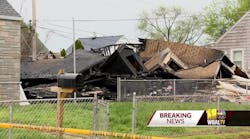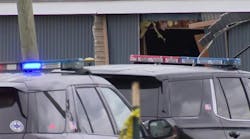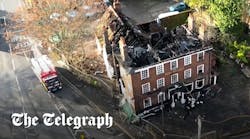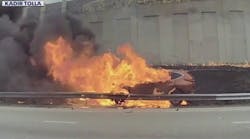HITTING someone with a chair is more than illegal. It is unconscionable and uncivilized.
I wish I could say that I understand it, for I have read all the theories that say family fights result from tensions that linger, perhaps forever, after a great loss; that firefighters need to harass each other to test the ability to endure, or that firefighters must retain an adolescent personality to muster the guts to go into burning buildings time and time again.
But I don't understand it.
In my nearly 18 years of active duty in the New York Fire Department, I have worked in the busiest fire company, the slowest and one just about in the middle of the annual list of runs and workers. The work is as dangerous in every firehouse, busy or slow. A ceiling can fall or a fire can flash over in a slow company's district just as it can in a busy company's, and Providence does not consider the runs and workers list when a firefighter is killed in the line of duty.
But the reports on the tragic Staten Island incident have failed to discuss one key element: The dynamics of living differ from firehouse to firehouse, just as they do from home to home among families.
Sociologists and psychologists tell us that workplace conditions depend on many, many variables: the size of the firehouse kitchen, for instance, and the feeling of confinement; the age and condition of the firehouse, which can demoralize in the same way that tenement apartments do; lighting and decibel levels, which can distract the workers.
These elements are absolutely true and meaningful in other workplaces, but I know in my heart that they mean nothing in a firehouse.
Firefighters love their job, and they will love it as much even in an inadequate firehouse. Both the department and the city know this, which is why they leave it to the firefighters to clean, condition and improve firehouse interiors, at the firefighters' expense.
No, problems in firehouses are not caused by external factors, but by the internal dynamics. Just as most families have eccentric uncles or cousins, a firehouse can also have someone who doesn't quite fit in. One firehouse is not identical to another, and this dynamic of difference has to be considered when making a judgment about firefighters.
It is more than regrettable to see a journalist ascribe the hostility we saw in one firehouse to all the others.
Over the years, I've worked with thousands of men in firehouses, and I've seen only one fight. It was almost predictable from the time we took up the hose at an "all hands" fire. One word was said indicating that a man wasn't where he should have been during the fire, but it was said between two respected, fair men who were known to be "good with their dukes." These reputations followed them from their neighborhoods to the firehouse.
In my time, firefighters were usually neighborhood guys who were "good with their dukes." There is something almost honorable about the term. One of our greatest leaders, a Golden Gloves champ named Michael Maye, got elected president of the union because of it. This is not to idealize or even justify fist-fighting, but just to say that it can be understandable, while what happened in Staten Island is not.
Reporters have gotten it right, however, in citing tension within firehouses. Tension does exist, because firefighters are feeling more than a little abandoned by our political leaders. They feel isolated, and frustrated - these are tensions I've felt in meetings with 9/11 families.
The Lower Manhattan Development Corp. has named a winning design from among eight finalists, but the families feel, generally, that these designs don't represent the courage, humanity, outrage and suffering that were so integral to the experiences of 9/11.
There is no court of appeals, and the firefighters feel they have not been properly considered. Worse still, it has yet to be announced whether the names of the first responders will be listed in association with their department or company.
Kevin Rampe, the president of the LMDC, has said that the whole redevelopment of the World Trade Center will, in effect, be a memorial. He's wrong about that, but he will probably go on to be president of the Port Authority. The firefighters, who are right to feel let down, will stay in their firehouses waiting for the next alarm.
Why is it that Gov. Pataki seems to understand that (as Edward Gibbon said) it takes both freedom and virtue to make a society work, but is dismissive of the truly virtuous - those men and women, cops and firefighters, who chose to go up those stairs to help people survive?
Dennis Smith, Founding Editor of Firehouse Magazine, is the author of 12 Books, including "Report from Engine Company 82" and "Report from Ground Zero."
Related:





